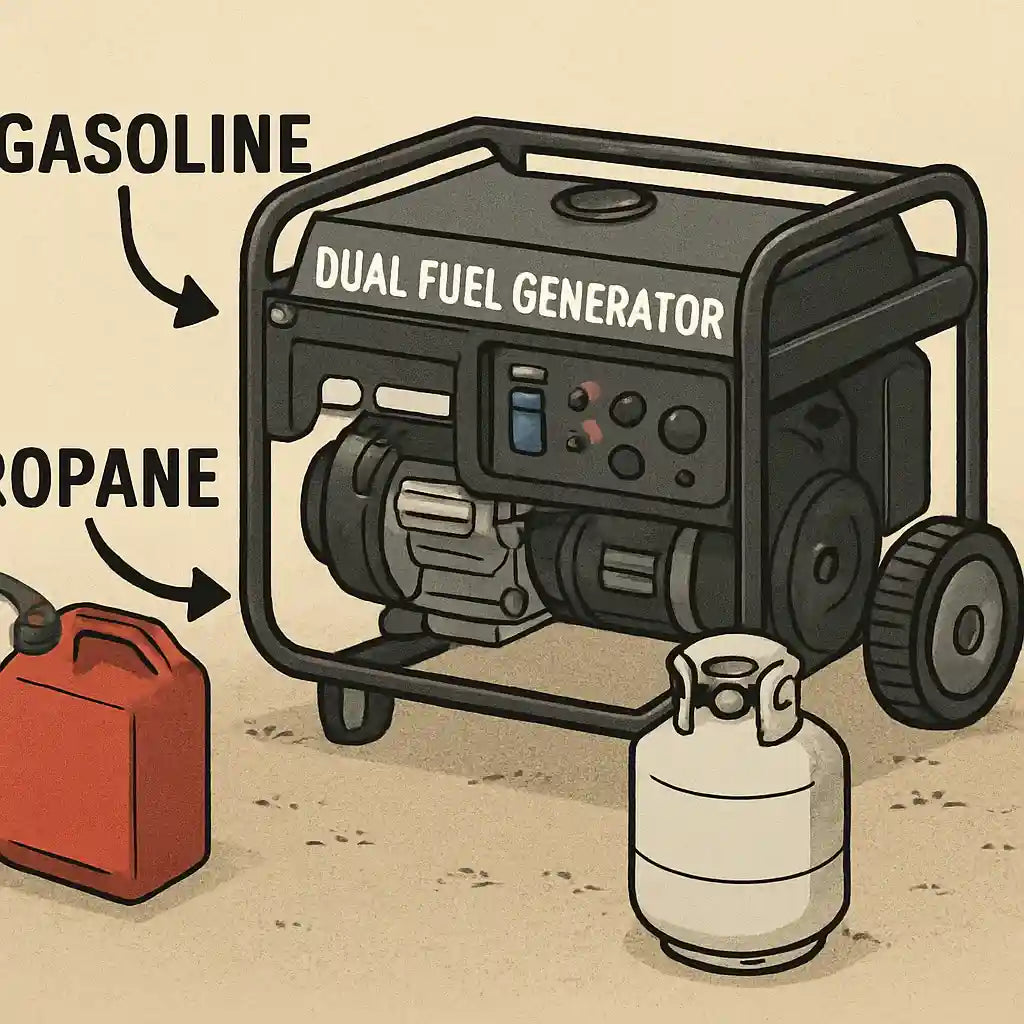Maintenance Tips for Dual Fuel Generators
Maintaining a dual fuel generator is essential for ensuring its longevity, reliability, and efficiency. Whether you're a tech-savvy homeowner looking to power your smart home, an eco-conscious product developer focused on sustainability, or a consumer electronics retailer aiming to educate customers, understanding the maintenance of dual fuel generators can provide significant benefits.
In this article, we will explore practical maintenance tips that will keep your dual fuel generator running smoothly and efficiently.
Dual fuel generators offer the flexibility of using either gasoline or propane as a power source. This versatility makes them an attractive option for those seeking reliable and adaptable power solutions. They are especially useful during power outages, camping trips, or as a portable power source for various applications.
The Advantages of Dual Fuel Generators
Dual fuel generators provide several benefits, including:
- Fuel Flexibility: The ability to switch between gasoline and propane allows users to choose the most readily available or cost-effective fuel at any given time.
- Extended Runtime: Propane typically burns cleaner than gasoline, potentially leading to longer engine life and reduced maintenance needs.
- Environmental Benefits: Propane is a cleaner-burning fuel, producing fewer emissions compared to gasoline.
- Convenience and Reliability: A dual fuel generator can offer peace of mind with fuel options during emergencies or when traveling off-grid.
Essential Maintenance Tips
To ensure your dual fuel generator remains in optimal condition, regular maintenance is key. Here are some essential tips to follow:
Routine Engine Checks
- Oil Changes: Regularly check and change the engine oil as per the manufacturer's recommendations. Clean oil is vital for reducing engine wear and extending the generator's life.
- Air Filter Inspection: Inspect the air filter regularly and clean or replace it if it appears dirty. A clean air filter ensures efficient airflow and optimal engine performance.
- Spark Plug Maintenance: Check the spark plug for wear and replace it if necessary. A well-functioning spark plug is crucial for consistent engine ignition.
Fuel System Maintenance
- Fuel Tank Inspection: Regularly inspect the fuel tank for leaks or signs of corrosion. Ensure the fuel caps are tightly sealed to prevent contamination.
- Fuel Stabilization: If using gasoline, add a fuel stabilizer to prevent degradation, especially if the generator will be stored for an extended period.
- Propane System Checks: Inspect propane hoses and connections for leaks. Ensure the propane tank is in good condition and securely connected.
Battery Care
For generators with electric start features, maintaining the battery is important:
- Battery Charge: Regularly check the battery charge and recharge it if necessary. A charged battery ensures reliable starting.
- Corrosion Prevention: Keep battery terminals clean and free from corrosion to maintain good electrical connections.
General Maintenance Practices
- Regular Testing: Operate the generator regularly, even when not in use, to keep internal components lubricated and ensure it starts reliably.
- Storage Precautions: Store the generator in a clean, dry place, and protect it from moisture and dust.
- Scheduled Servicing: Follow the manufacturer's maintenance schedule for professional servicing and inspections.
Troubleshooting Common Issues
Even with diligent maintenance, occasional issues may arise. Here are some common problems and solutions:
Engine Won't Start
- Check Fuel Levels: Ensure there's enough fuel in the tank and the fuel valve is open.
- Inspect the Spark Plug: Remove and inspect the spark plug for fouling or damage.
- Battery Condition: Verify the battery is charged and terminals are clean.
Generator Runs Rough
- Air Filter: Check for a clogged air filter and clean or replace it if needed.
- Fuel Quality: Ensure the fuel isn't stale or contaminated.
Low Power Output
- Overload: Verify the generator isn't overloaded beyond its capacity.
- Voltage Settings: Ensure the voltage output settings are correct.
Are Dual Fuel Generators Worth It?
Dual fuel generators can be a worthwhile investment for many users. They offer fuel flexibility, reliability, and environmental benefits that single-fuel generators may not provide. Whether you're powering a smart home, developing eco-friendly products, or selling consumer electronics, understanding these advantages can enhance your decision-making and customer engagement.
Conclusion
Maintaining a dual fuel generator is essential for maximizing its efficiency, reliability, and lifespan. By following these maintenance tips, you can ensure your generator remains a dependable power solution, ready to meet your needs in any situation.
For tech-savvy homeowners, eco-conscious developers, and retailers, mastering the care and maintenance of dual fuel generators not only enhances product longevity but also promotes sustainable and informed use of power solutions. With the right care, a dual fuel generator can be an integral part of modern-day power needs, delivering both convenience and peace of mind.```






